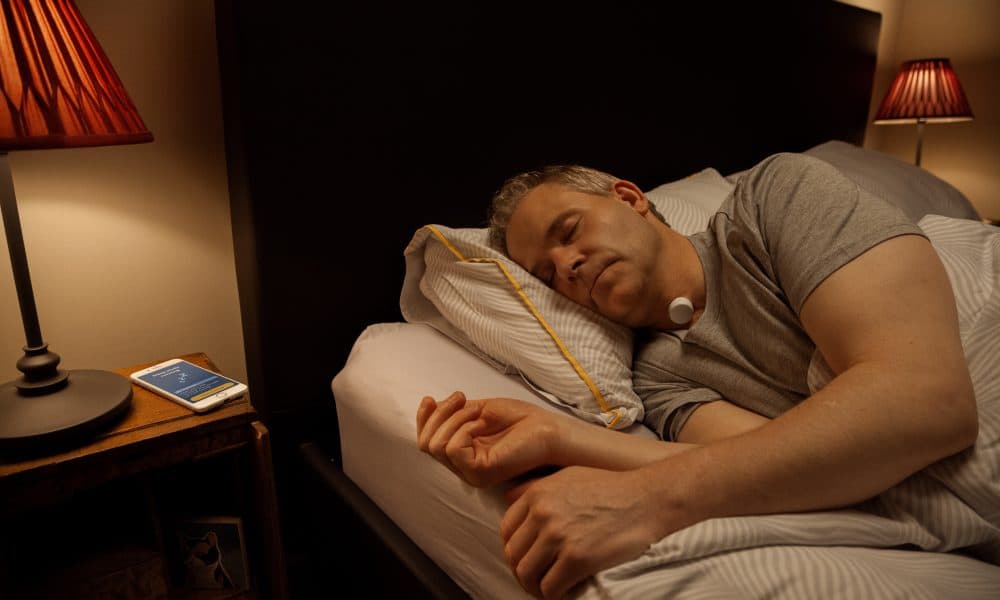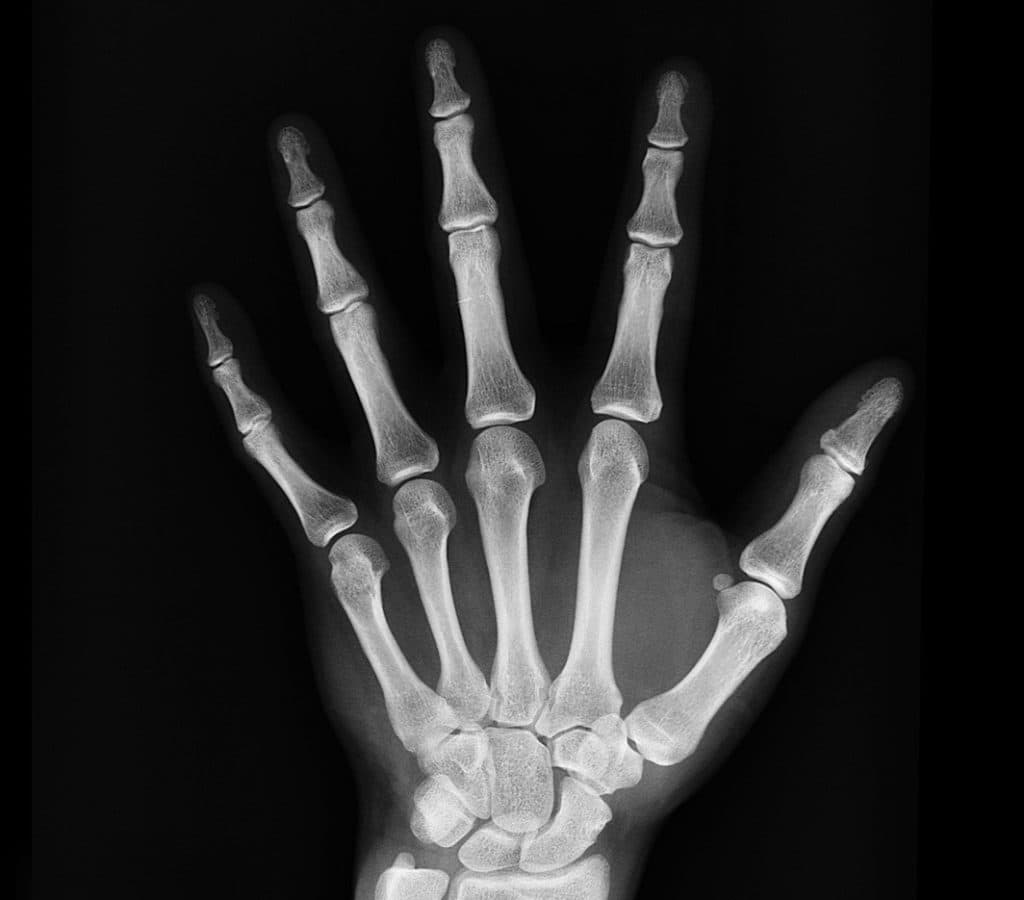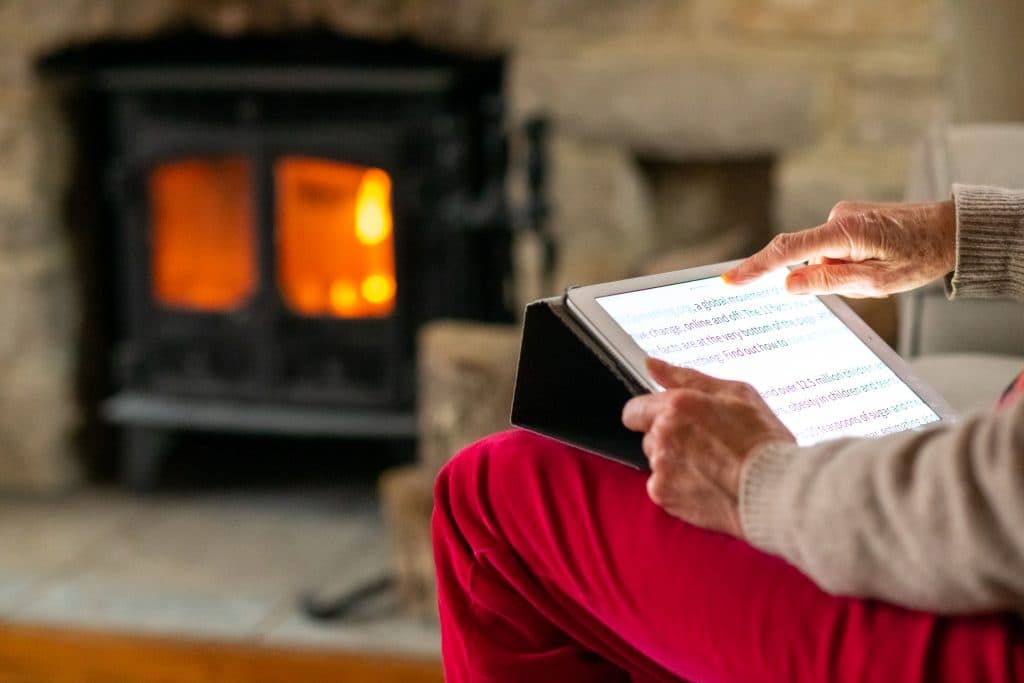
AcuPebble SA100, a small wearable device that enables automated, remote home testing to detect obstructive sleep apnoea (OSA) in adults, has obtained FDA 510(k) clearance as a Class II medical device in the USA.
AcuPebble provides an instant diagnostic sleep test result that is equivalent in accuracy to cardiorespiratory polygraphy, which requires time consuming clinical interpretation.
The device, which received a CE Mark as a Class IIa medical device in 2020, was developed and is commercialised by UK-based medical device company Acurable.
California-based Magnap are using AcuPebble in a sleep apnoea clinical trial at the University of California San Francisco. Joseph Lamberti, Lead Engineer at MagNap, said the AcuPebble SA100 has been a game-changing research tool.
“We started to use the Pebble to monitor participants in our study for two reasons.
“In-hospital sleep studies (polysomnograms) were not available because of Covid and when they were, our participants were unwilling to go to the hospital due to risks associated with exposure.
“The study team also wanted to collect a much larger sample nightly sleep study data with each patient. I am constantly refining and adjusting our therapy device and need to tease out what works and doesn’t work.
“We have found that there is quite a bit of night-to-night variability on the quality of sleep without purposely changing any specific parameters.
“In order to determine what works best for my study participants, I collect multiple nights of sleep data before drawing conclusions. Collecting this much data is only possible because the Pebble is so easy to use and does not bother the participants during the course of a night’s sleep.”
The AcuPebble sensor is very small and non-invasive. Simple instructions provided by a companion mobile application guide the patient through their sleep study without any training, creating a seamless patient experience.
AcuPebble devices sense the physiological sounds generated by the body, detecting, amongst others, respiratory and cardiac disease biomarkers.
Processed acoustic signals are transferred to a mobile device and to the cloud, where patented algorithms extract the parameters, doctors need to diagnose or manage conditions such as sleep apnoea, COPD and asthma. Automatic processing means that the demand for a clinician’s time is greatly reduced.
OSA is one of the most common serious respiratory disorders, affecting approximately 1bn people globally. The condition causes sufferers to repeatedly stop breathing while sleeping. If left untreated, it can lead to serious health complications including high blood pressure, heart attack, type 2 diabetes and dementia.
It is also the cause of 25 per cent of road accidents due to tiredness. However, current diagnosis methods are complex, manual and expensive, a problem that AcuPebble sets out to address by making OSA evaluation easy and comfortable for patients and clinicians.
Professor Esther Rodriguez-Villegas, inventor of the AcuPebble technology and founder of Acurable said the company is focusing on expanding into the US market, where OSA affects at least 25m adults. The company will open an office in the USA in 2022, and is currently working with US healthcare organisations.
“Sleep apnoea is a condition that affects millions of people, and diagnostic bottlenecks lead to the majority not having a timely diagnosis.
“This not only has serious health implications but also leads to massive unnecessary medical costs further down the line.
With the adoption of AcuPebble SA100 in Europe growing rapidly, and now FDA clearance, we are very excited to bring AcuPebble to as many people as possible living with undiagnosed sleep apnoea.”





